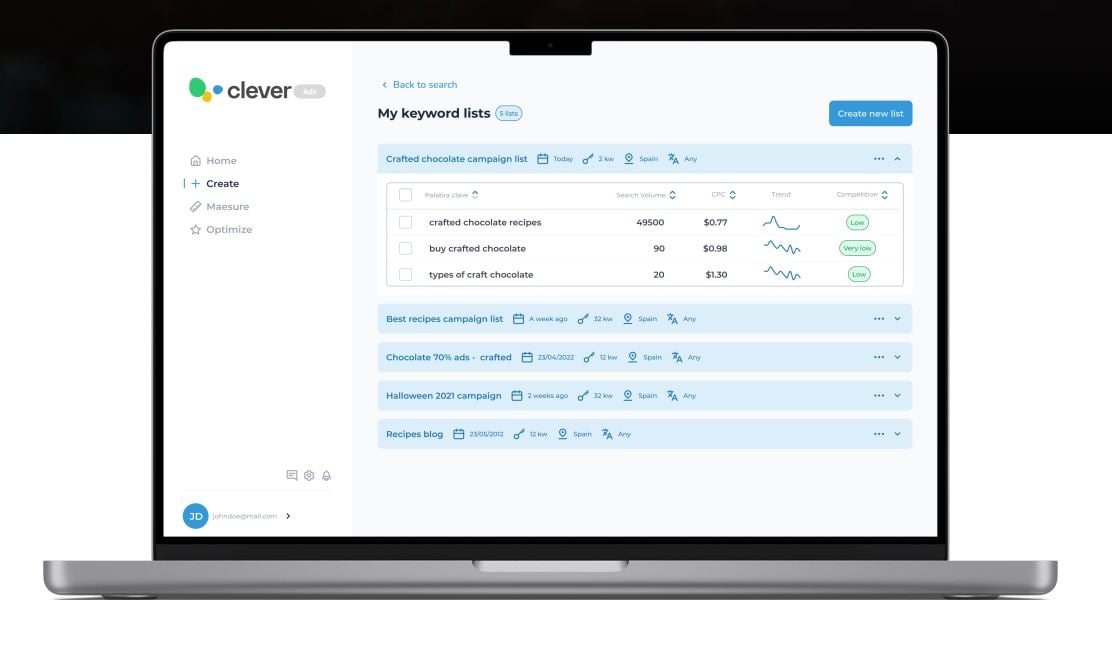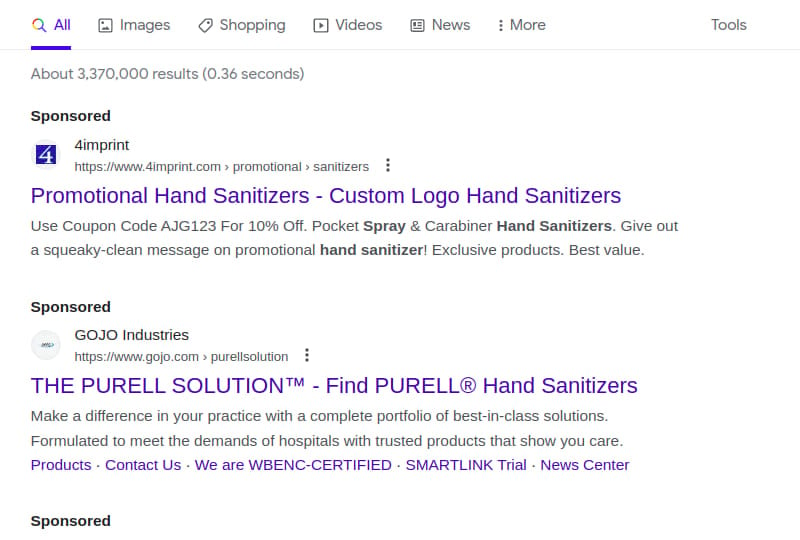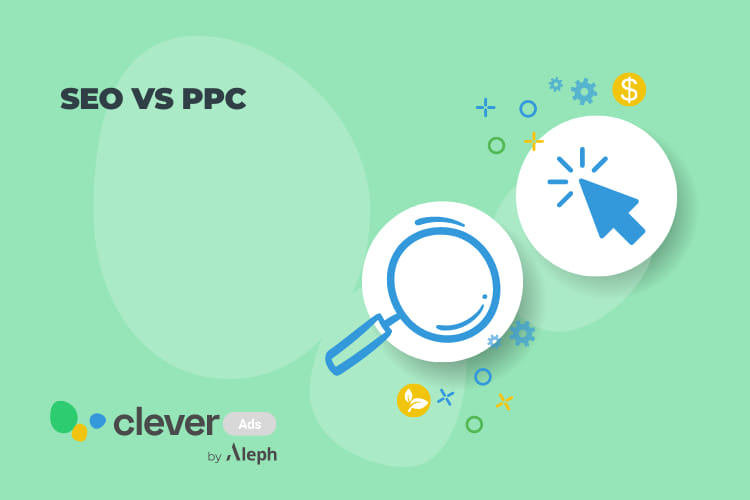SEO vs PPC for eCommerce: What to choose for your online store
Many owners of small to medium eCommerce stores believe they’re forever stuck paying for traffic with PPC (Pay Per Click) ads and that SEO (Search Engine Optimization), only works for large corporations. Luckily, this isn’t the case. Many successful eCommerce businesses can benefit from both PPC and SEO, even though they are quite different marketing strategies. Want to learn what’s best for your eCommerce store and where to invest your marketing budget? Follow this SEO vs PPC guide to understand how SEO compares with PPC for eCommerce businesses.
What’s better, SEO or PPC for eCommerce?
So when comparing SEO and PPC for eCommerce, which comes out ahead? It depends on what type of business you currently run and what your goals are.
For businesses that are only starting out and don’t have a brand name behind them, PPC is one of the only options for creating a cash flow. It can bring in a stream of revenue almost instantly and be instrumental in developing your business.
Businesses that already have a stream of income can invest in SEO to reap long-term benefits. While it takes some time for SEO to work, it can decrease your operating costs significantly.
The optimal strategy would be not to compare SEO vs PPC for eCommerce but to use both of them. We’ll look at when to use each in this SEO vs PPC guide.
Benefits and Strategies for eCommerce SEO
When you’re deciding whether to go with SEO vs PPC for eCommerce stores, your first consideration should be whether you can afford to wait for results. In general, any type of SEO effort can start bringing traffic and revenue anywhere from three to six months.
However, SEO holds its own against PPC in terms of ROI (Return Of Investment). It doesn’t require constant spending to generate a profit. Once a page starts ranking in the top 10 for a keyword and generating traffic, you usually don’t have to do much to keep it there.
On top of that, organic traffic typically has a higher conversion rate than other channels, mainly because people who go to your site through organic search are already interested in purchasing something.
SEO eCommerce strategies
The key to good SEO for eCommerce is doing exhaustive keyword research and optimizing product and category pages with the right keywords in mind. You can do very basic keyword research with tools like the Google Keyword Planner or Clever Ads Keyword Planner.

Apart from optimizing existing product pages, you can try to create new informational content. For instance, take an information keyword that focuses on how to use your product or create a guidefor solving a typical customer problem and optimize it for the right keywords.
People who are searching for a solution will read your article and may end up becoming one of your clients.
The last component of an SEO strategy is building links to your website. Backlinks are a way for Google’s search engine to understand what your website is about and whether other websites trust you.
You can build links by:
- Reaching out to prominent blogs in your industry and creating content for them
- Working with the local news and being quoted by them
- Getting listed on review websites
- Creating interesting content like infographics and
- quizzes that others will link to.
While it’s possible to rank for certain easy keywords without building any links, keywords that have more competition may require some link-building to succeed.
No SEO strategy is complete without a way to monitor your progress. You can track ranking with tools like Google Analytics or Google Search Console (which can also identify opportunities for improvement). Paid tools like SE Ranking provides a full understanding of website organic performance in all popular search engines. With SE Ranking’s Google position checker, you can track your ranking positions across different markets (country, city, or even zip code-wide) both in organic and Local Pack results.

Benefits and Strategies for eCommerce PPC
As opposed to SEO, PPC marketing produces fast results. Even though the ROI may be higher in SEO, pay-per-click advertising on Google has a fairly decent 8:1 revenue to ad spend ratio.
On top of that, paid ads take priority in the search results and can be highly targeted to specific demographics who have higher chances of converting.

This makes PPC a great if not necessary starting point for any ecommerce store.
PPC eCommerce strategies
The main advantage of PPC over SEO is the ability to target ads toward a specific group of customers. This is the main focus of most PPC strategies.
One of the most important aspects of a successful PPC search campaign is focusing on the right keywords. You want to find the right keywords for your product pages. You should be looking for keywords that match your page — if they don’t, users might be more inclined to leave.
Along with keywords that match your pages, you also want to find keywords that are irrelevant to the pages and add them to the stop list to increase the campaign’s ROI.
For instance, if you serve ads for your pet store for the keyword “pet food,” Google will serve ads for all keywords containing it. This includes the keyword “pet food guide,” which is an information request, and users who google it aren’t interested in making a purchase. So adding the word “guide” to the stop list may improve the conversion rate and save money on ad spend.
A technique that can reduce ad spend even further is focusing on longer keywords. They typically don’t have as many companies competing for ad space, so the price of a click will be much lower.
Tools like Google Keyword Planner can give you keyword suggestions and the estimated cost per click and competition on long keywords.
Targeting keywords can be done with SEO as well. Where the comparison of SEO and PPC favors pay-per-click ads is in more advanced targeting. With a PPC campaign, you can narrow the audience you’re showing your ads to.
This can be instrumental in decreasing overall ad spend and improving efficiency because you’ll be serving ads to your core audience.
It may be impossible to target the right audience if you’re just starting out and don’t have that many customers. If you already have traffic and sales on your website, take the data and apply it to your campaign.
Another way to narrow down the audience of your ads is to analyze how they perform. As you run your PPC ads, you will learn what types of ads, which keywords, and what audiences perform better. From there, you can optimize ads by either reducing the spending on the worst-performing categories or cutting them off completely.
When you begin a campaign, it’s best to spend a little bit more than your budget for some time to get more traffic. This gives you more information or analysis and lets you optimize the campaign faster.
SEO vs PPC Comparison for Online Stores
Now that we have more knowledge on how to organise different types of marketing for your online store, let’s look at how to go about choosing when to use SEO and when to use PPC.
Campaign type
The main factor when choosing between SEO vs PPC for any online store is what type of campaign you want to run. If you’re running a short-term campaign like a seasonal sale, or your goal is to make immediate sales, your best choice is to create a PPC campaign.
If your goals are a long-term increase in sales and brand awareness, SEO would be best.
Cost-effectiveness
Another factor that you should take into consideration is cost-effectiveness. Both SEO and PPC can be cost-effective but with different structures.
PPC only brings in revenue as long as you continue spending on ads. If there’s a dent in your cash flow for some reason, the number of sales may also plummet. You can improve the ROI of pay-per-click advertising as you continue the campaign by optimizing the targeting, changing the ad copy, or prioritizing less competitive keywords.
SEO can bring results for years, and the costs of doing SEO optimization are rather stable. Most SEO campaigns for eCommerce stores include quarterly audits, link-building efforts, and monitoring positions.
For a niche eCommerce store, it typically shouldn’t cost too much because many keywords will have low competition.
However, SEO does require an upfront investment because the first audit and implementing best practices take more effort and monetary investments.
Targeting vs Reach
Your choice between SEO or PPC depends on whether you’re interested in making immediate sales or improving brand visibility.
To make sales more efficient, you’ll want to target the right audience, which is nearly impossible with organic search. In this case, you’ll want to go with PPC and optimize targeting.
Improving brand visibility requires a higher reach, and that can become expensive with PPC. Therefore, it’s best to run an SEO content campaign and target informational keywords relevant to your niche.
Long-term Sustainability vs Speed
Another factor in choosing between SEO vs PPC is how fast you need results. PPC can bring in revenue fast, but it’s not exactly sustainable over the long term.
SEO is the better choice if you’re looking to increase ROI and receive a more stable stream of leads that doesn’t require constant spending on ads.
Conversion vs ROI
The last factor worth taking into consideration when choosing between SEO and PPC for your eCommerce store is whether you want to prioritize conversion or ROI.
When you need conversions and don’t particularly care about how much you have to spend to achieve them, PPC is more suitable.
If you’re looking for a good return on investment over the long term and you’re okay with a lower conversion rate, SEO is the best choice.
SEO vs. PPC: What to Choose for eCommerce
While both SEO and PPC can work great for your eCommerce store, each serves its own purpose. The final decision should depend on your goals and research in your niche.
Let’s say you run a small niche website that sells arts and crafts goods. When you do keyword research, you find out that most of the keywords that are relevant for your product pages have very low keyword difficulty.
The competing websites are worse than yours — they either don’t look presentable or offer inferior products. They also don’t seem to have many backlinks, or their backlink profiles lack quality links.
In this case, it won’t take that much effort to rank your pages for the right keywords. It will likely require only a bit of keyword optimization.
If during your research you find that the keyword difficulty for your keywords is rather high and most websites that you see in the search results look good and have a great link profile, the odds of outranking them are slim. Or rather, it would take too much effort, so going with SEO would be impractical.
Buying ads for these keywords may be expensive as well, but you can mitigate that by targeting a specific group of people who are more likely to convert. You could also try to improve conversions by experimenting with the copy of the ad and the landing page.
Summary
In a sense, the debate on SEO vs PPC for eCommerce is a misnomer as both strategies can be used to great effect by eCommerce stores.
Choose wisely where to use each marketing strategy, and do your due diligence to optimize it. Whether you choose to start with one strategy or pursue both strategies together, using them in the right context will improve your online store and move its bottom line.




